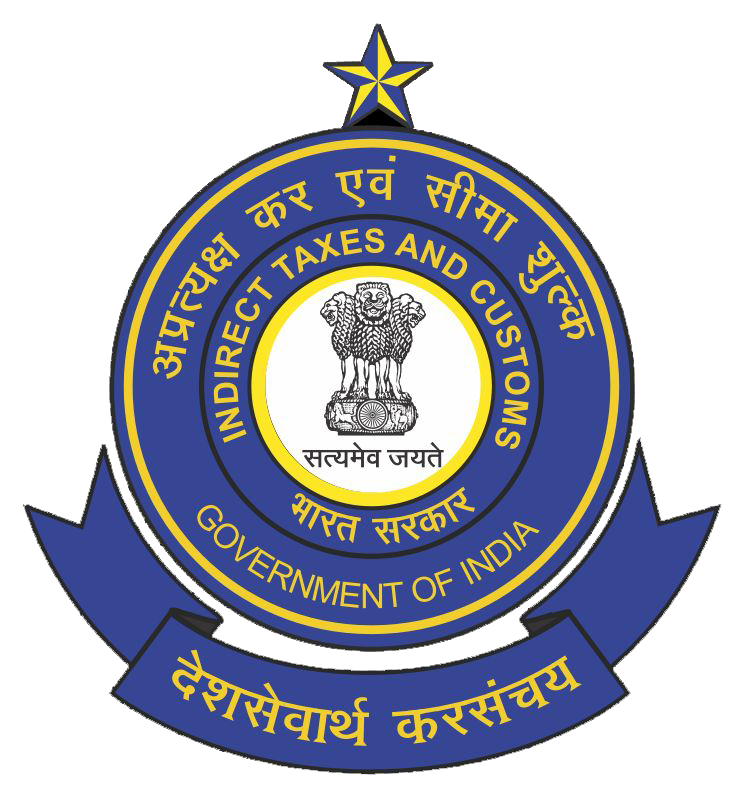The Customs work in Cochin Port has been in existence for over one and half century. Before 1947, the centre of activity of Customs work was at Fort Cochin formerly known as British Cochin. With the gradual development of Cochin Port, the Willingdon Island, an artificial Island constructed by Lord Willingdon became the hub of activity and the Custom House was shifted from Fort Cochin to Willingdon Island in 1956. The Customs Department was under the administrative control of the Collector of Central Excise, Madras. Department's own building was constructed during 1956 and since then the Custom House commenced functioning as a full-fledged Custom House under a separate Collector of Customs. In 1960, the Central Excise formations within the State of Kerala were brought under the jurisdiction of the Collector of Customs and the post was designated as Collector of Customs and Central Excise, Cochin. In 1983, the functional segregation of Customs and Central Excise was effected and separate Collectors were designated for Central Excise and Customs having respective jurisdiction of the entire state. In 1989, the jurisdictional area of the Commissioner of Customs was redefined to cover the Cochin Port, Cochin Airport, Cochin Export Processing Zone and the area falling under the jurisdiction of the Greater Cochin Development Authority and the Commissioner of Central Excise was re-designated as Commissioner of Central Excise and Customs having jurisdiction over the remaining area of the state.
The Custom House is headed by a Commissioner, assisted at present by one Additional Commissioner, 3 Deputy Commissioners and 3 Assistant Commissioner. To assist the Commissioner in his functions, the Custom House has 299 Group 'B' officers, 137 Group 'C' officers. Three wings viz. Preventive, Appraising and Ministerial handle the various functions of the Custom House. The Preventive Department is in charge of the anti-smuggling functions and operations within the jurisdiction of the Custom House . The Custom House is equipped with a full-fledged Laboratory which undertakes analysis of various goods imported / exported. The laboratory also undertakes chemical analysis of the goods manufactured in various factories in the State for the purpose of classification and assessment under the Central Excise Tariff Act. The Special Investigation Branch is entrusted with the work of detecting economic offences in the import and export. The Air Intelligence Unit spearheads the anti-smuggling operations at the Airport. The Postal Appraising Department handles the articles imported and exported through Post, which function in close liaison with the Postal Authorities.
Major items of import through this port are Crude Petroleum, other Petroleum Products, Rubber products, Raw Cashew Nuts, Vegetable Oil, Cement, Metallic Ores, .Machinery, Motor Vehicles, .Defense classified goods etc. Major items of export are Tea, Coffee, Pepper, Cardamom and other Spices, Frozen Marine Products, Cashew Kernels, Cotton piece goods, other Textiles products and Garments, Leather and Leather products, Engineering goods, Pharmaceutical products, Gold Jewellery etc. Major portion of the revenue of this Custom House is from the import of Petroleum Crude and other Petroleum Products, which represents around 65% of the total revenue realisation.
The pattern of import, export and cargo handling have undergone considerable changes during the last decade which has resulted in significant increase in container traffic. Over 1,70,000 containers are handled by this port every year. There has been decentralisation and consolidation of export and import of cargo at Inland Container Depots (ICD) and at Container Freight Stations (CFS). Five Container Freight Stations are in operation at Cochin handling both export and import cargo under the purview of Cochin Customs. Cochin is the gateway port for ICDs' and CFSs' notified by the Commissionerates of Coimbatore and Bangalore.
Open House Meetings are conducted periodically for trade facilitation and to address the concerns of the trade, chaired by the commissioner of customs. Public Grievance Cell, Customs Advisory Committee, Tax Payers Committee and Information Facilitation Cell are also functioning under the chairmanship of the Commissioner of Customs. Problems faced by the importers / exporters or passengers in any matter pertaining to Customs including clearance of the cargo or baggage or procedural difficulties are discussed and settled by these Committees.
Passenger clearance at Cochin International Airport started from June 1999 onwards, since His Excellency, The President of India dedicating this Airport to the Nation. The Customs work at the Airport is attended by deploying staff from the Custom House. On an average 1600 international flights operate in a month catering to more than 200000 passengers each way. A fully functional Air Cargo Complex is also part of the Cochin International Airport.
An International Container Transhipment Terminal (I.C.T.T)set up at Vallarpadom has been dedicated to the nation by Honorable Prime Minister of India on 11.02.2011. The I.C.T.T is within the jurisdiction of this Commissionerate and is expected to increase the volume of trade tremendously. Cochin is a regular Port of Call for Luxury Cruise vessels.
Electronic Data Interchange (EDI) System has been introduced at Cochin Custom House from 31.12.1998. Indian Customs EDI system (ICES) was introduced initially for exports and extended to imports from 08-02-1999. I.C.E.S is managed by Directorate of Systems and Data Management. At present, more than 99% of the documents are processed through the ICES and the current version in operation is I.C.E.S 1.5.
Risk Management System (RMS) was introduced in Custom House Cochin on 14-12-2007. The objective of this system is to achieve optimal balance between facilitation and enforcement of Customs Law by selective screening of only high risk cargo for Customs examination of Accredited clients.
© Copyright 2017. All Rights Reserved.
Content owned, maintained and updated by Custom House Kochi
Hosted by National Informatics Centre




